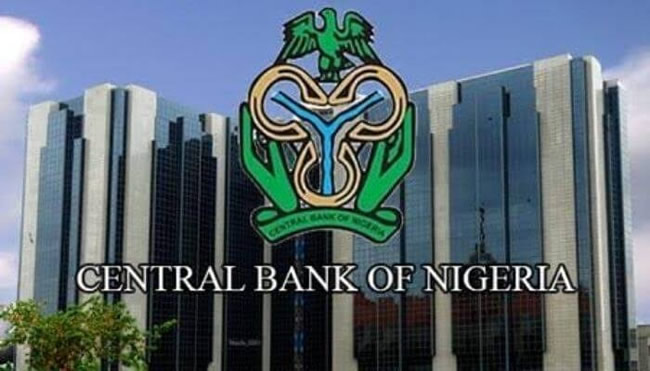Central banks use inflation targeting to promote economic growth and price stability, setting an inflation target as a key indicator. When inflation rises, central banks typically tighten monetary policy by increasing interest rates or implementing other restrictive measures. Conversely, if inflation falls and economic output declines, central banks lower interest rates to make borrowing more affordable. Most central banks pursue a mildly inflationary policy to safeguard against deflation, which could otherwise deter both domestic and foreign investments.
The National Bureau of Statistics recently reported that domestic headline inflation rose from 33.95% in May 2024 to 34.19% in June 2024, driven largely by ongoing increases in the annual growth rates of both food and core inflation. On a month-over-month basis, headline inflation increased to 2.31% in June 2024, up from 2.14% in May 2024. The food and core components rose from 2.28% and 2.01% in May 2024 to 2.55% and 2.06% in June 2024, respectively. In the first quarter of 2024, real GDP grew by 2.98% annually, compared to 3.46% in the fourth quarter of 2023, with growth fueled by both the non-oil and oil sectors.
At its 296th meeting, the CBN’s Monetary Policy Committee made several key decisions, including raising the Monetary Policy Rate (MPR) by 50 basis points, from 26.25% to 26.75%, adjusting the asymmetric corridor around the MPR from +100/-300 basis points to +500/-100 basis points, maintaining the Cash Reserve Ratio at 45.00% for Deposit Money Banks and 14.0% for Merchant Banks, and keeping the Liquidity Ratio at 30.00%. These are bold moves by the CBN, underscoring its role as a key player in economic development.
The increase in the MPR to 26.75% marks the fourth consecutive rise since February 2024, a move aimed at curbing the rising cost of living that has become a significant concern since mid-2023. The MPR is a critical tool for controlling the economy, influencing factors such as inflation, exchange rate stability, and savings.
- How new ministry can change livestock farming
- Why FG’s palliatives will not address food inflation – Agriculture experts
By adjusting the MPR, the Central Bank of Nigeria (CBN) has once again demonstrated its commitment to maintaining economic stability amid rising inflation. This proactive approach to mitigating inflationary pressures highlights the CBN’s dedication to navigating Nigeria’s complex economic landscape.
One of the primary tools that central banks use to manage inflation is the monetary policy rate. By raising the MPR, the CBN effectively increases the cost of borrowing, reducing the amount of money circulating in the economy. This tightening of monetary policy is intended to decrease business investment and consumer spending, thereby helping to bring inflation under control.
Nigeria has faced significant inflationary pressures in recent months due to various factors, including disruptions in the domestic supply chain, rising global commodity prices, and internal financial challenges. The CBN’s decision to raise the MPR is a direct response to these pressures, aiming to preserve the value of the Naira and stabilise prices.
Inflation erodes the value of money, reducing household purchasing power and increasing the cost of living. Given that a large portion of Nigeria’s population lives below the poverty line, high inflation can have severe social and economic consequences. The rising cost of essential goods disproportionately affects the poor, exacerbating inequality and potentially leading to social unrest. The CBN’s intervention through MPR adjustment is therefore crucial to mitigate these negative effects. Stability is essential for attracting both domestic and foreign investment, which is vital for job creation and economic diversification.
CBN Governor Dr. Olayemi Cardoso has reaffirmed that the Monetary Policy Committee will take all necessary steps to combat high inflation in the country. He emphasised that interest rates will remain elevated for as long as necessary to control inflation. The CBN’s hawkish stance was evident at the first MPC meeting in February 2024, where the benchmark lending rate was raised by 400 basis points to 22.75%. High rates, however, are not expected to deter investment and production, as the foreign exchange market is anticipated to stabilise, making investors more confident in the market.
In outlining its policy direction for 2024, the CBN has prioritised price and exchange rate stability to foster sustainable economic growth. Through targeted monetary policies, transparent market operations, and close coordination with fiscal authorities, the bank is committed to achieving economic stability.
The CBN is repositioning itself as a catalyst for economic stability and growth, working with stakeholders to create an enabling environment for sustained economic development. This includes ensuring transparency and a fair market environment for exchange rate determination and collaborating with experts to develop de-risking instruments that encourage private sector investment in key industries such as housing, textiles, food supply chains, healthcare, and education.
In the short term, the MPR can help control inflation by reducing spending and encouraging savings, while managing economic growth. In the medium term, the policy is expected to effectively control inflation, stabilise prices for goods and services, and bring stability to the exchange rate by attracting foreign investment and strengthening the Naira. However, some economic slowdown is anticipated due to reduced borrowing and job creation. Nonetheless, if the measures succeed in controlling inflation, they could lead to a more stable economic environment in the long term, as stable prices allow individuals and businesses to plan and invest for the future.
Chiroma wrote via [email protected]

 Join Daily Trust WhatsApp Community For Quick Access To News and Happenings Around You.
Join Daily Trust WhatsApp Community For Quick Access To News and Happenings Around You.

